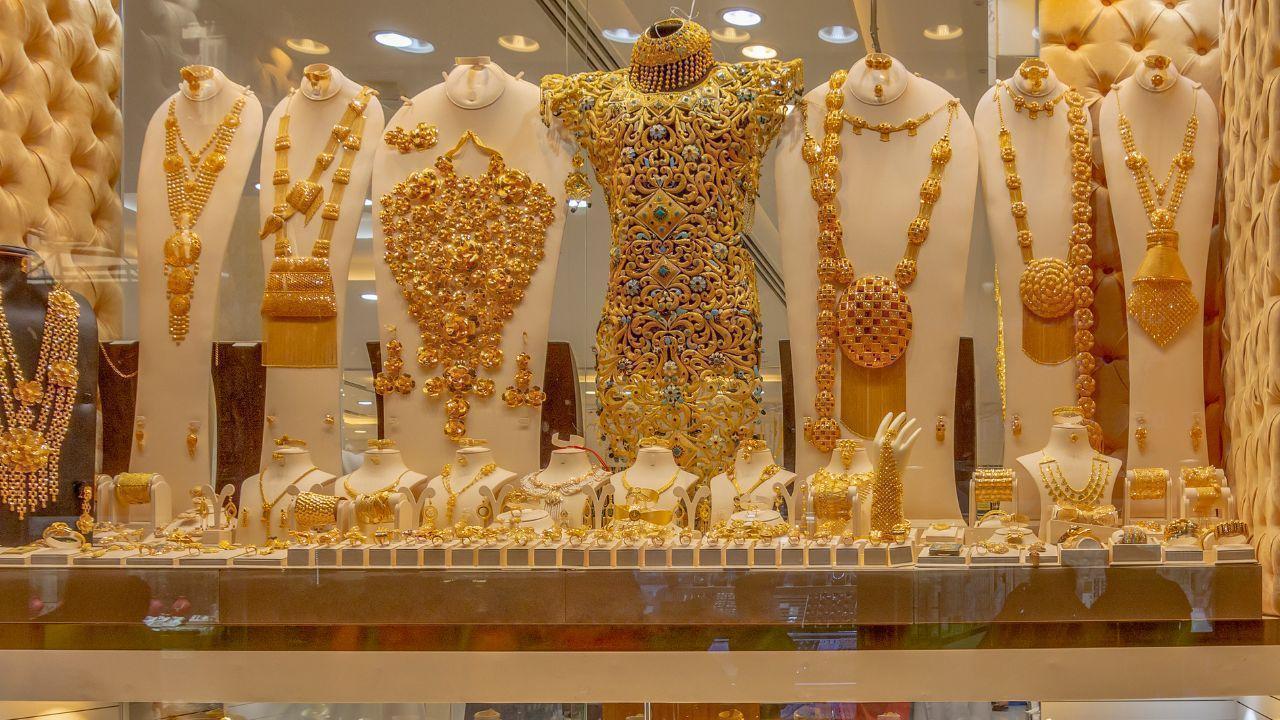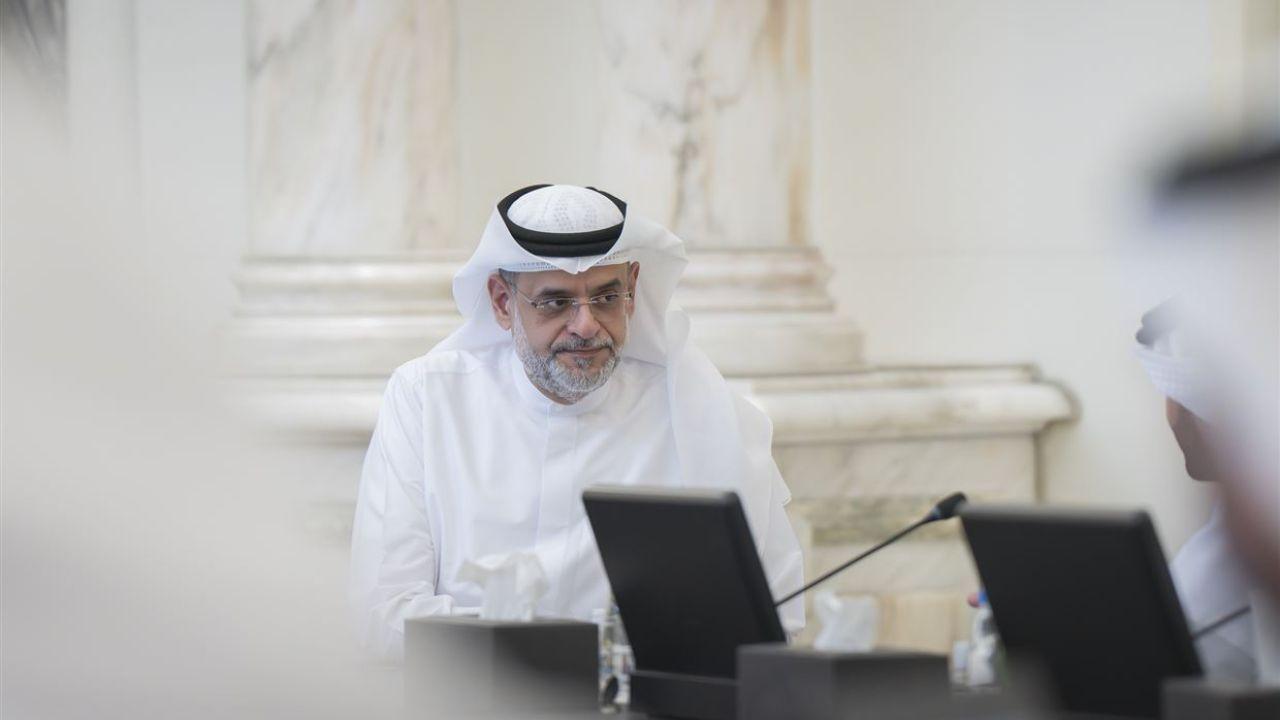
Navigating the Dubai Real Estate Market: Legal Advice for Expats Buying Property
Dubai, with its gleaming skyscrapers, opulent properties, and tax-friendly environment, has long been a magnet for expatriates seeking new horizons. The city's real estate market, adorned with architectural marvels and promising returns, beckons investors from across the globe. Yet, beneath the allure lies a maze of legal complexities that can intimidate even the most seasoned buyers. For expats venturing into Dubai's real estate realm, a firm grasp of the legal landscape is not just advisable – it's essential.
- The Emirate's Enigmatic Legal Tapestry
Dubai's real estate journey begins with an understanding of its legal framework, intricately woven by the Dubai Land Department (DLD). This regulatory body serves as the custodian of property transactions, ensuring fairness, transparency, and adherence to the law. Its role is paramount in safeguarding the interests of both buyers and sellers in this bustling metropolis.
- Choosing Your Path: Freehold vs. Leasehold
Expatriates in Dubai are presented with a choice: freehold or leasehold ownership. The former grants unrestricted ownership rights over both property and land, a coveted privilege for those seeking long-term investments or residency. Meanwhile, leasehold arrangements offer the right to use the property for a specified period, typically 99 years. Understanding the implications of each option is fundamental to making informed decisions.
- The Art of Due Diligence
In the labyrinth of Dubai's real estate market, due diligence is the compass guiding expat investors to safe harbors. From scrutinizing title deeds to verifying ownership rights, thorough investigations are imperative to unearth any hidden risks or discrepancies. Engaging reputable real estate agents and legal advisors can illuminate the path forward, ensuring a journey free from legal entanglements.
- Financing in a Foreign Land
Securing financing for property acquisitions in Dubai requires navigating a maze of regulations and criteria, particularly for expatriates. While mortgages are attainable, lenders may impose stringent conditions and higher down payments. Prospective buyers must embark on this financial voyage with prudence, exploring their options and seeking pre-approval before setting sail.
- The Price Beyond the Price: Fees and Taxes
The purchase price of a property in Dubai is just the tip of the iceberg. Beneath the surface lie a myriad of fees and taxes awaiting unsuspecting investors. Property registration fees, agent commissions, and service charges are but a few of the expenses that must be factored into the equation. Understanding these additional costs upfront is paramount to avoiding financial turbulence along the way.
- Navigating the Legal Currents
In the vast sea of Dubai's real estate market, legal guidance is the anchor that keeps expat investors grounded. Qualified legal advisors versed in property law can navigate the choppy waters of contracts, agreements, and regulations. Their expertise provides a reassuring presence, ensuring that investors' rights and interests remain steadfast in the face of legal complexities.
Deciphering the Legal Landscape: A Guide to Understanding the Framework of Property Ownership in Dubai
In the bustling metropolis of Dubai, the dream of owning a piece of its glittering skyline is a reality for many expatriates. However, behind the glamour lies a complex legal framework that governs property ownership in the emirate. To navigate this landscape successfully, it's crucial to unravel the intricacies of Dubai's real estate laws and regulations.
- Unveiling the Dubai Land Department (DLD)
At the heart of Dubai's real estate sector stands the Dubai Land Department (DLD), a pivotal institution responsible for overseeing property transactions. The DLD acts as a guardian of transparency and fairness, ensuring that all dealings within the real estate market adhere to legal standards and protect the rights of buyers and sellers alike.
- The Dichotomy of Ownership: Freehold vs. Leasehold
One of the first decisions expatriates face when buying property in Dubai is choosing between freehold and leaseho ld ownership. With freehold ownership, buyers enjoy unrestricted rights over both the property and the land it occupies, granting them full autonomy and control. Conversely, leasehold ownership grants the right to use the property for a specified period, typically 99 years, subject to the terms of the lease agreement.
ld ownership. With freehold ownership, buyers enjoy unrestricted rights over both the property and the land it occupies, granting them full autonomy and control. Conversely, leasehold ownership grants the right to use the property for a specified period, typically 99 years, subject to the terms of the lease agreement.
- The Importance of Due Diligence
Before diving headfirst into a property transaction, expats must conduct thorough due diligence to safeguard their interests. This involves scrutinizing the property's title deed, verifying the seller's ownership rights, and conducting a comprehensive inspection to uncover any hidden issues or discrepancies. Engaging the services of a reputable real estate agent and legal advisor can provide invaluable support in navigating this critical stage of the buying process.
- Financing: Unlocking the Door to Ownership
For many expatriates, securing financing is a crucial step towards realizing their property ownership aspirations. While obtaining a mortgage in Dubai is feasible for expatriates, lenders may impose stricter eligibility criteria and require a higher down payment. Exploring various financing options and obtaining pre-approval before embarking on the property search can streamline the buying process and enhance negotiation power.
- Deciphering Fees and Taxes
Beyond the purchase price, expatriates must factor in additional fees and taxes associated with property ownership in Dubai. These may include property registration fees, agent commissions, and service charges for amenities and facilities in residential communities or high-rise developments. Understanding these costs upfront enables expats to budget effectively and avoid unexpected financial burdens.
- The Power of Legal Counsel
Given the nuanced nature of Dubai's real estate market, seeking legal advice from knowledgeable professionals is paramount for expatriates. A skilled legal advisor can offer invaluable insights into the legal implications of property transactions, review contracts and agreements, and safeguard expats' interests throughout the buying process. With expert guidance, expatriates can navigate the complexities of Dubai's legal framework with confidence and peace of mind.
Certainly! Here's a detailed explanation of the types of property ownership in Dubai, presented in a unique and easy-to-understand manner:
Types of Property Ownership in Dubai: A Comprehensive Guide
When it comes to buying property in Dubai, understanding the different types of ownership is crucial. Whether you're an expatriate looking to invest in the city's booming real estate market or a local buyer seeking your dream home, knowing your options can make all the difference.
- Freehold Ownership:
Freehold ownership is perhaps the most coveted form of property ownership in Dubai, especially among expatriates. With freehold ownership, you have complete control over both the property and the land it sits on. This means you can use, lease, sell, or inherit the property without any restrictions. Freehold properties are typically found in designated freehold areas, such as Dubai Marina, Downtown Dubai, and Palm Jumeirah.
- Leasehold Ownership:
Leasehold ownership, on the other hand, grants you the right to use the property for a specified period, usually 99 years. While you won't own the land outright, you have the right to occupy and enjoy the property during the lease term. Leasehold properties are common in areas where freehold ownership is not permitted, such as certain parts of Dubai's older neighborhoods.
- Usufruct Rights:
Usufruct rights allow you to use and benefit from a property without owning it outright. This type of ownership is often seen in cases where a developer retains ownership of the land but grants individuals or companies the right to develop and use the property for a specified period. Usufruct rights are common in leasehold arrangements and can offer investors an opportunity to generate income from their property without the long-term commitment of ownership.
- Commonhold Ownership:
Commonhold ownership, also known as strata title ownership, is a form of ownership commonly associated with condominiums and apartment buildings. In a commonhold arrangement, individual owners own their respective units while sharing ownership of common areas such as lobbies, corridors, and amenities. This type of ownership is governed by a homeowners' association or management company, which oversees the maintenance and management of the property.
- Off-Plan Ownership:
Off-plan ownership refers to purchasing a property that has not yet been built or completed. This type of ownership is common in Dubai's fast-paced real estate market, where developers often sell units in new projects before construction begins. While off-plan ownership can offer attractive pricing and payment plans, buyers should exercise caution and conduct thorough due diligence to mitigate risks associated with delays or changes to the project.
The Importance of Due Diligence When Buying Property in Dubai
In the bustling world of real estate, where dreams of owning a slice of Dubai's iconic skyline can become a reality, there's a crucial step that should never be overlooked: due diligence. This process isn't just a formality; it's a vital safeguard for expatriates venturing into the Dubai property market.
- What is Due Diligence?
Due diligence is akin to peeling back the layers of an onion—it involves digging deep to uncover any potential issues or concerns related to a property before making a purchase. It's about ensuring that what you see is truly what you get and that there are no unpleasant surprises waiting for you down the road.
- Verifying the Title Deed
At the heart of due diligence lies the title deed—the legal document that proves ownership of the property. This document must be thoroughly scrutinized to confirm its authenticity and accuracy. Any discrepancies or irregularities could signal trouble ahead, making it essential to cross every "t" and dot every "i."
- Confirming Ownership Rights
In Dubai's dynamic real estate market, property ownership can sometimes be a complex affair, with multiple stakeholders involved. Expatriate buyers must verify the seller's ownership rights and ensure that they have the legal authority to transfer ownership. This involves examining documents such as power of attorney and sales agreements to establish a clear chain of ownership.
- Conducting a Property Inspection
Looks can be deceiving, which is why a physical inspection of the property is a crucial part of due diligence. From structural integrity to maintenance issues, a thorough inspection can uncover hidden defects that may not be immediately apparent. It's a chance to kick the tires and ensure that the property is in good condition and meets your expectations.
- Understanding Legal Restrictions
Dubai's real estate market is subject to various legal restrictions and regulations, particularly when it comes to foreign ownership. Expatriates must familiarize themselves with these laws and understand any limitations or conditions that may apply to their purchase. This includes restrictions on certain types of properties, residency requirements, and eligibility criteria for financing.
- Reviewing Contracts and Agreements
A key aspect of due diligence is reviewing contracts and agreements related to the property transaction. This includes the sales contract, mortgage agreement (if applicable), and any other legal documents associated with the purchase. Each clause and provision must be carefully examined to ensure that the terms are fair and favorable to the buyer.
- Seeking Professional Guidance
Given the complexities of Dubai's real estate market, expatriates should not undertake due diligence alone. It's essential to seek professional guidance fro m qualified experts, including real estate agents, legal advisors, and property inspectors. These professionals can provide valuable insights and guidance throughout the due diligence process, helping expatriates make informed decisions and avoid costly mistakes.
m qualified experts, including real estate agents, legal advisors, and property inspectors. These professionals can provide valuable insights and guidance throughout the due diligence process, helping expatriates make informed decisions and avoid costly mistakes.
Navigating Property Financing and Mortgages in Dubai: A Comprehensive Guide for Expats
Securing financing and mortgages for property purchases in Dubai is a crucial step for expatriates looking to invest in the city's vibrant real estate market. While the process may seem daunting, understanding the ins and outs of property financing can empower expats to make informed decisions and achieve their investment goals. Let's delve deeper into the world of property financing and mortgages in Dubai.
- Exploring Financing Options
Expats buying property in Dubai have several financing options at their disposal, including bank mortgages and developer financing. Bank mortgages are typically the most common route for expats, offering competitive interest rates and flexible repayment terms. However, it's essential for expats to shop around and compare mortgage products from different banks to find the best deal that suits their financial situation and investment objectives.
- Eligibility Criteria and Documentation
While obtaining a mortgage as an expatriate in Dubai is generally feasible, lenders may impose stricter eligibility criteria compared to local residents. Expats may be required to provide additional documentation, such as proof of income, employment history, and residency status. It's essential for expats to gather all the necessary paperwork and ensure that they meet the lender's requirements before applying for a mortgage.
- Down Payments and Loan-to-Value Ratio
When applying for a mortgage in Dubai, expats should be prepared to make a substantial down payment upfront. While the exact amount may vary depending on the lender and the property's value, expats can typically expect to pay between 20% to 25% of the property's purchase price as a down payment. The loan-to-value ratio, which represents the percentage of the property's value that the lender is willing to finance, will also influence the down payment requirement.
- Repayment Terms and Interest Rates
Mortgage repayment terms in Dubai typically range from 15 to 25 years, allowing expats to spread out their repayments over a manageable period. It's essential for expats to carefully consider the repayment term and choose an option that aligns with their financial goals and budget. Additionally, expats should pay close attention to the interest rates offered by lenders, as even a slight difference in rates can have a significant impact on the overall cost of the mortgage.
- Developer Financing Options
In addition to bank mortgages, some developers in Dubai offer financing options for expats purchasing properties directly from them. Developer financing may come in the form of installment plans or deferred payment schemes, allowing expats to pay for the property over time without the need for external financing. While developer financing can be convenient, expats should carefully review the terms and conditions and compare them to other financing options to ensure they're getting the best deal.
- Pre-Approval and Pre-Qualification
Before embarking on their property search, expats should consider obtaining pre-approval or pre-qualification for a mortgage. Pre-approval involves a thorough assessment of the expat's financial situation by the lender, resulting in a conditional commitment to provide financing up to a certain amount. Pre-qualification, on the other hand, is a preliminary assessment based on the expat's financial information, providing an estimate of how much they may be eligible to borrow. Both pre-approval and pre-qualification can give expats a competitive edge in the property market by demonstrating their financial readiness to sellers.
Navigating Fees and Taxes When Buying Property in Dubai
In the vibrant world of Dubai's real estate, understanding the various fees and taxes associated with property transactions is crucial for expatriate buyers. While the allure of owning a piece of this cosmopolitan paradise is undeniable, navigating the financial landscape requires careful consideration and planning. Let's delve deeper into the world of fees and taxes in Dubai's property market.
- Property Registration Fees:
When purchasing property in Dubai, buyers are required to pay a property registration fee to the Dubai Land Department (DLD). This fee is calculated as a percentage of the property's purchase price and covers the cost of registering the transaction and transferring ownership rights. It's important for buyers to budget for this fee, as it can represent a significant portion of the overall transaction costs.
- Agent Commissions:
In Dubai's real estate market, it's common for buyers to engage the services of a real estate agent to facilitate the property purchase process. These agents typically charge a commission fee, which is negotiated between the buyer and the agent and is usually calculated as a percentage of the property's sale price. While this fee is payable by the seller in some cases, buyers should clarify their financial obligations with their agent upfront to avoid any misunderstandings later on.
- Service Charges:
For properties located within gated communities, high-rise buildings, or master-planned developments, buyers may be required to pay service charges for amenities and facilities provided by the developer or homeowners' association. These charges cover the cost of maintaining common areas, landscaping, security services, and other communal facilities. Buyers should inquire about these service charges during the due diligence process and factor them into their ongoing expenses after purchasing the property.
- Municipality Fees:
In addition to property registration fees, buyers may incur various municipality fees related to the issuance of NOCs (No Objection Certificates) and other administrative processes. These fees vary depending on the nature of the transaction and the specific requirements of the local municipality. Buyers should consult with their legal advisor or real estate agent to understand the municipality fees applicable to their property purchase and ensure compliance with all regulatory requirements.
- Mortgage Fees:
For buyers financing their property purchase through a mortgage, there may be additional fees associated with loan processing, valuation, and documentation. These fees are typically charged by the lender and can vary depending on the terms of the mortgage agreement. Buyers should carefully review their mortgage contract and consult with their lender to understand all applicable fees and charges before proceeding with the loan application.
- Value Added Tax (VAT):
While residential properties in Dubai are generally exempt from VAT, buyers should be aware that certain goods and services related to property transactions may be subject to VAT at a standard rate of 5%. These may include real estate agent commissions, legal fees, and other professional services. Buyers should consult with their tax advisor to understand the VAT implications of their property purchase and ensure compliance with all tax regulations.
Navigating the Legal Landscape: Essential Legal Advice for Expats in Dubai
In the bustling metropolis of Dubai, expatriates from around the globe are drawn to the city's promise of opportunity, luxury, and cosmopolitan living. For many expats, buying property in Dubai is a dream come true, offering the chance to own a piece of this dynamic cityscape. However, amidst the excitement of property investment, it's crucial for expatriates to understand the legal intricacies involved in the process.
- Understanding the Legal Terrain
Dubai's real estate market operates within a well-defined legal framework overseen by the Dubai Land Department (DLD). This regulatory body plays a pivotal role in ensuring transparency, fairness, and compliance in property transactions, safeguarding the interests of both buyers and sellers.
- Types of Property Ownership
Expatriates have the choice between freehold and leasehold ownership when purchasing property in Dubai. Freehold ownership grants full ownership rights over the property and the land it occupies, providing buyers with maximum control and flexibility. Conversely, leasehold ownership confers the right to use the property for a specified period, typically 99 years, after which ownership reverts to the landowner.
- Due Diligence: A Crucial Step
Before committing to a property purchase, expats must conduct thorough due diligence to mitigate risks and ensure a smooth transaction. This involves verifying the property's title deed, confirming the seller's ownership status, and conducting a comprehensive inspection to identify any issues or discrepancies. Engaging the services of a reputable real estate agent and legal advisor can provide invaluable assistance during this process.
- Financing Considerations
Expatriates seeking to finance their property purchase in Dubai have various options available, including bank mortgages and developer financing. While obtaining a mortgage as an expat is feasible, lenders may impose stringent eligibility criteria and require a higher down payment. Exploring financing options early in the process and obtaining pre-approval can streamline the buying journey.
- Fees and Taxes: The Fine Print
In addition to the purchase price, expats should budget for additional fees and taxes associated with buying property in Dubai. These may include property registration fees, agent commissions, and service charges for amenities and facilities. Understanding these costs upfront can prevent surprises and help expats plan their budget effectively.
- Expert Legal Guidance
Given the complexity of Dubai's real estate market, expatriates are strongly advised to seek legal advice from qualified professionals with expertise in property law. A legal advisor can provide tailored guidance, review contracts and agreements, and ensure that expats' rights and interests are protected throughout the transaction. This personalized support can offer peace of mind and confidence to expats navigating the legal landscape.
Summary:
The article provides essential legal advice for expatriates buying property in Dubai, emphasizing the importance of understanding the legal landscape, conducting due diligence, and seeking expert guidance. It explores key aspects such as property ownership options, due diligence processes, financing considerations, fees and taxes, and the role of legal advisors. By familiarizing themselves with these factors, expats can navigate the complexities of the Dubai real estate market with confidence and assurance.
Disclaimer:
DXB News Network advises readers that the information provided in this article is for general guidance and informational purposes only. While every effort has been made to ensure the accuracy and reliability of the information, readers are encouraged to seek professional legal advice tailored to their specific circumstances before making any decisions or taking any actions related to property purchases in Dubai. DXB News Network does not accept any responsibility or liability for any loss or damage arising from the use of or reliance on the information provided in this article.
#trending #latest #DubaiRealEstate #PropertyInvestment #LegalAdvice #ExpatsInDubai #RealEstateLaw #DueDiligence #PropertyOwnership #FinancialPlanning #DubaiPropertyMarket #LegalGuidance #breakingnews #worldnews #headlines #topstories #globalUpdate #dxbnewsnetwork #dxbnews #dxbdnn #dxbnewsnetworkdnn #bestnewschanneldubai #bestnewschannelUAE #bestnewschannelabudhabi #bestnewschannelajman #bestnewschannelofdubai #popularnewschanneldubai

His Highness Sheikh Dr Sultan bin Mohammed Al Qasimi attended the 34th Sharjah Theatre Days closing...Read More.

The Role of Jewelry in Empowering Women...Read More.
 Cleveland Clinic Abu Dhabi sees 35% rise in international patients in 2024
Cleveland Clinic Abu Dhabi sees 35% rise in international patients in 2024
The hospital saw more demand for heart, eye, nerve, and kidney care, with patients from Kuwait, Saud
 Michelle Trachtenberg, Buffy the Vampire Slayer Star, Passes Away
Michelle Trachtenberg, Buffy the Vampire Slayer Star, Passes Away
Michelle Trachtenberg, known for Buffy the Vampire Slayer and Gossip Girl, has passed away at 39
 Louvre Abu Dhabi launches 5th Art Here & Richard Mille Art Prize
Louvre Abu Dhabi launches 5th Art Here & Richard Mille Art Prize
Louvre Abu Dhabi's Art Here 2025 explores light, shadow, and shared Gulf-Japan traditions
 Chelsea Crush Southampton, Aston Villa Lose to Crystal Palace in CL Race
Chelsea Crush Southampton, Aston Villa Lose to Crystal Palace in CL Race
Chelsea secured a 3-0 lead in the first half with goals from Nkunku, Neto, and Colwill, marking thei
 Sharjah Crown Prince presides over Executive Council meeting
Sharjah Crown Prince presides over Executive Council meeting
HH Sheikh Sultan bin Mohammed chaired Sharjah's Executive Council meeting Tuesday
Sultan Al Qasimi attends 34th Sharjah Theatre Days closing ceremony

His Highness Sheikh Dr Sultan bin Mohammed Al Qasimi attended the 34th Sharjah Theatre Days closing

Discover the hottest artists redefining music in 2025
Cleveland Clinic Abu Dhabi sees 35% rise in international patients in 2024

The hospital saw more demand for heart, eye, nerve, and kidney care, with patients from Kuwait, Saudi Arabia, Pakistan, Bahrain, and the USA traveling to Abu Dh
Sultan bin Ahmed Al Qasimi attends Xposure International closing

His Highness Sheikh Sultan bin Ahmed Al Qasimi attended the closing of Xposure’s 9th edition, a global event that welcomed over 30,000 attendees, celebrating ph
Top Music Releases and Tours Happening Right Now

Discover the hottest music releases and must-see tours today
Wizz Air to launch nonstop flights from London to Madinah soon

Starting August 2, Wizz Air will run seven weekly flights using A321 XLR aircraft with 239 seats
Competitive Sports Trends That Athletes Should Know in 2025

Key sports trends in 2025 to help athletes improve performance
Dubai real estate prices fall for the first time in two years

Property Monitor's monthly report shows a 4.6% drop in sales volume compared to December 2024
Israel refuses Gaza pullout, putting ceasefire deal at risk

Hamas stated that Israel can only secure the release of remaining hostages through talks and truce
3001E, 30 Floor, Aspin Commercial Tower, Sheikh Zayed Road, Dubai, UAE
+971 52 602 2429
info@dxbnewsnetwork.com
© DNN. All Rights Reserved.